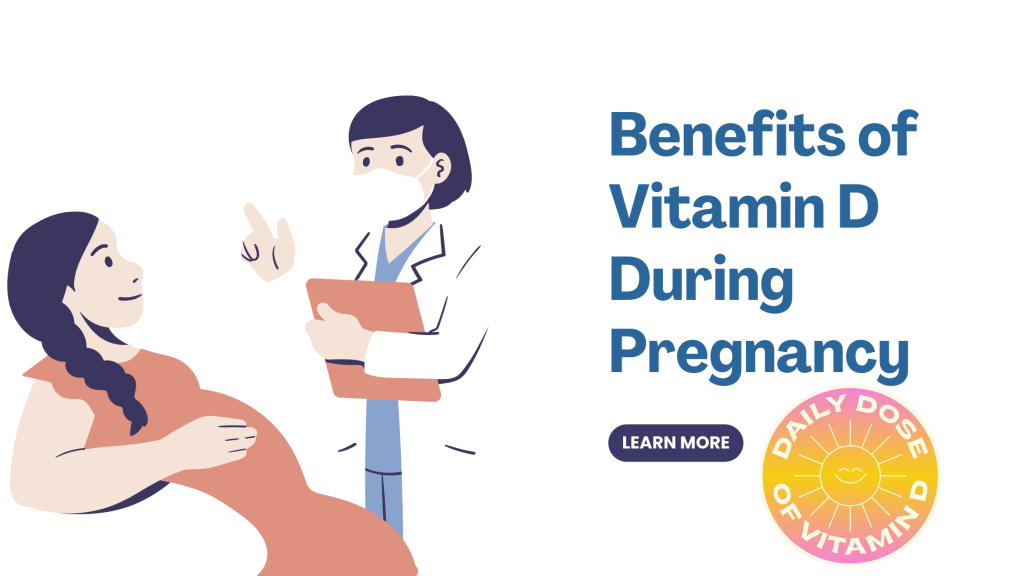
Introduction
Pregnancy is a beautiful journey that brings joy and excitement to expectant parents. It is a time when the body undergoes numerous changes to nurture and support the growing life within. One crucial aspect of prenatal care is ensuring optimal nutrition for both the mother and the baby. Among the various essential nutrients, vitamin D plays a pivotal role in promoting the health and well-being of both the mother and the developing fetus. In this article, we will explore the incredible benefits of vitamin D during pregnancy and why it is crucial to prioritize its intake. Consult dr. Sonal Bhangale
Enhances Fetal Skeletal Development
Vitamin D is well-known for its role in calcium absorption, a mineral vital for building and maintaining strong bones. During pregnancy, the demand for calcium significantly increases as the baby’s skeletal system develops. Adequate vitamin D levels facilitate the absorption of calcium from the mother’s diet, ensuring proper formation and growth of the baby’s bones and teeth.
Supports Healthy Immune System
A robust immune system is essential for both the mother and the developing baby to combat infections and diseases. Vitamin D plays a significant role in regulating the immune response, reducing the risk of infections, and promoting overall wellness. By maintaining optimal vitamin D levels, expectant mothers can support their immune system, providing a protective shield for themselves and their babies.
Reduces the Risk of Gestational Diabetes
Gestational diabetes is a type of diabetes that develops during pregnancy and can have adverse effects on both the mother and the baby. Studies have shown that maintaining sufficient levels of vitamin D during pregnancy may help reduce the risk of developing gestational diabetes. Vitamin D supplementation, alongside a balanced diet and regular exercise, can contribute to improved blood sugar control and promote a healthy pregnancy.
Promotes Maternal Bone Health
Pregnancy places increased demands on the mother’s body, including the need for additional calcium. If the mother’s diet lacks sufficient calcium, the body may withdraw calcium from her bones, increasing the risk of osteoporosis and fractures. Vitamin D aids in calcium absorption, ensuring the mother’s bones remain strong and healthy, even during the demanding stages of pregnancy and breastfeeding.
Enhances Mood and Mental Well-being
Pregnancy can bring about a rollercoaster of emotions, and it is crucial to prioritize mental well-being during this time. Vitamin D has been associated with improved mood and reduced risk of depression. Adequate levels of vitamin D may help alleviate mood swings, promote emotional stability, and enhance overall mental well-being, contributing to a positive pregnancy experience.
Supports Healthy Birth Weight
Low birth weight is a concern for many expectant mothers, as it can be associated with various complications. Studies have indicated that sufficient vitamin D levels during pregnancy may contribute to optimal birth weight, reducing the risk of low birth weight babies. Ensuring an adequate intake of vitamin D through diet or supplementation can support healthy fetal growth and development.
Reduces the Risk of Preterm Birth
Preterm birth, defined as delivery before 37 weeks of gestation, can pose significant health challenges for the baby. Emerging research suggests that maintaining optimal vitamin D levels during pregnancy may help reduce the risk of preterm birth. While further studies are needed to establish a conclusive link, it is wise to prioritize vitamin D intake as part of a comprehensive prenatal care plan.
Supports Brain Development
The developing baby’s brain undergoes rapid growth during pregnancy, making it essential to provide adequate nutrients for optimal development. Vitamin D has been associated with brain health and cognitive function. By ensuring sufficient vitamin D levels, expectant mothers can support the healthy development of their baby’s brain and potentially enhance cognitive abilities later in life.
In conclusion, vitamin D plays a vital role in promoting the health and well-being of both the mother and the developing baby during pregnancy. From enhancing fetal skeletal development to supporting the immune system and reducing the risk of gestational diabetes, the benefits of vitamin D are numerous. By prioritizing a diet rich in vitamin D sources, such as fatty fish, fortified dairy products, and exposure to sunlight, expectant mothers can provide the necessary nourishment for a healthy and thriving pregnancy.
